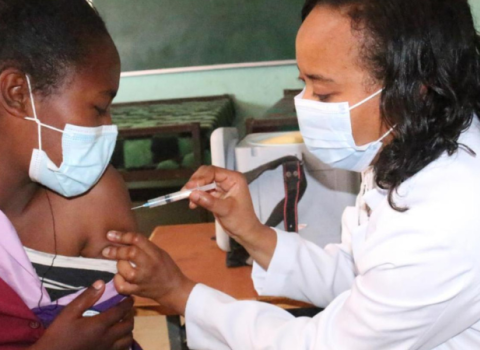
Partnerships to address unmet medical need.
The latest data from International Federation of Pharmaceutical Manufacturers & Associations (IFPMA) documents 155 long-term programmes for specific diseases in the developing world that are backed by pharmaceutical companies, compared to 135 in the 2007.
“Partnerships to Build Healthier Societies in the Developing World” shows the number of HIV/AIDS, tuberculosis and malaria programmes has increased from 78 to 82, while those for child and maternal health, plus chronic diseases, have grown from 28 to 43.
“During my eleven years with the IFPMA, industry-supported public private partnerships to improve health in the developing world have grown significantly,” said IFPMA Director General Harvey Bale. “These programmes are effective and resilient; for example, this year marks the 10th anniversary of the Global Alliance to Eliminate Lymphatic Filariasis, supported by GlaxoSmithKline and Merck & Co., Inc.”
Bale claimed the industry has also responded to emerging needs, as shown in the increase in programmes to improve the health of women and children, and to address the growing threat of chronic disease in developing countries.
“Industry-backed partnerships are also responding to the challenges posed by inadequate health infrastructure in developing countries,” said Bale. In total 78 of the 155 disease-specific programmes involve capacity building activities, helping to reinforce health care systems.
In one country alone, Kenya, there are 36 industry-backed programmes, while pharma is involved in 11 PPPs for diabetes, and is in partnership with the World Health Organization in 28 programmes.
The IFPMA itself is working on a range of partnerships initiatives to address unmet developing world health needs, including:
- A Network for Neglected Disease Discovery, to share disease targets between industry and other research groups, allowing them to be screened against company compound libraries.
- A Sustainable R&D Funding Initiative, to lay the foundations for adequate funding for neglected disease R&D, by identifying needs to extend and complete existing portfolios.
- A Capacity Development Programme, to use industry and other expert resources to help address serious shortfalls in health care and regulatory capacity in many developing countries.
- A Supply Chain Initiative, to make industry expertise available to help develop robust medicine supply chains in developing countries.
- A Pediatric Medicines Task Force, to examine how the industry can help increase the availability of medicines for children, in response to the WHO’s new “Make Medicines Child Sized” initiative.
The IFPMA also made a grant of $1 million earlier this year to TDR – the Unicef, UNDP, the World Bank and WHO Special Programme for Research & Training in Tropical Diseases.





 A unique international forum for public research organisations and companies to connect their external engagement with strategic interests around their R&D system.
A unique international forum for public research organisations and companies to connect their external engagement with strategic interests around their R&D system.